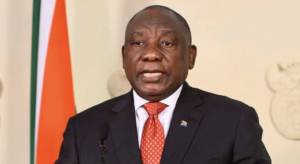
Fellow South Africans,
I address you this evening as we begin a new chapter in our struggle against the coronavirus.
Earlier today the Deputy President David Mabuza, Minister of Health Dr Zwelini Mkhize, Minister Khumbudzo Ntshavheni and I, received our country’s first consignment of COVID-19 vaccines.
The consignment, consisting of one million doses of the Covishield vaccine produced by the Serum Institute in India, arrived at OR Tambo International Airport this afternoon.
This vaccine was developed by the pharmaceutical company AstraZeneca together with the University of Oxford. South Africa was one of the countries where clinical trials were held to assess the drug’s efficacy.
The arrival of these vaccines contains the promise that we can turn the tide on this disease that has caused so much devastation and hardship in our country and across the world.
The speed and scale at which new vaccines have been developed is unprecedented in human history and represents the monumental progress that humanity can achieve in the face of a common threat.
South Africa has been part of this incredible journey by the global community in search of a lasting solution to the COVID-19 pandemic.
I want to thank all the South Africans who participated in various vaccines trials on a voluntary basis and commend all the researchers who led these studies.
Many of our researchers have participated in ground-breaking research in the field of genomics providing new information about the virus leading to the identification of the variant known as 501Y.V2.
Now that the vaccines have arrived they will be tested at the National Control Laboratory to confirm that their integrity has been maintained during transportation.
After testing, they will be distributed across the country to thousands of our healthcare workers who every day put their own lives at risk to save others.
We must ensure their protection as they fight for ours.
In accordance with our phased rollout strategy, all healthcare workers in the public and private sectors will be prioritised for vaccination.
Provincial health departments have submitted their distribution plans and we have identified about 200 facilities to which the vaccines can be distributed.
Once we have completed the vaccination of healthcare workers, we will move to Phase 2 of the national vaccine strategy, which will include essential workers, people over 60 years, people with co-morbidities as well as those living in places such as nursing homes and hostels.
In Phase 3, we will extend the vaccination programme to the rest of the adult population.
I know many of you will be asking the all-important question: how you will access the vaccine if you fall in the categories to which I have referred.
The Department of Health has developed an Electronic Vaccine Data System to streamline the vaccine registration and rollout process. This will allow us to capture all relevant data associated with the administration of the vaccine.
This system allows a person to make an appointment as soon as they qualify for a vaccination at the vaccine centre closest to them. The system will record vaccinations as they are administered.
As I said during my previous address, we are sourcing our vaccines from a number of suppliers.
– In addition to the 1 million Covishield doses that we received today; we expect another 500,000 doses from the Serum Institute of India to arrive later in February.
– We have secured 12 million doses in total from the global COVAX facility, which has indicated that it will release approximately 2 million doses by March.
– We have secured 9 million vaccine doses from Johnson & Johnson, commencing with delivery in the second quarter. Johnson & Johnson has contracted Aspen, one of our pharmaceutical companies, to manufacture these vaccines in South Africa.
– In addition, Pfizer has committed 20 million vaccine doses commencing with deliveries in the second quarter.
We are in advanced negotiations with manufacturers to secure additional supplies.
South Africa will also receive an allocation of vaccine doses through the African Union, which has been negotiating with manufacturers to secure vaccines for the entire continent on a pooled basis.
Through the African Vaccine Acquisition Task Team of the African Union, we have to date secured 1 billion vaccines for the entire continent.
Seven hundred million of these will come from the global COVAX facility and 300 million have been facilitated by the African Vaccine Acquisition Task Team.
We will be getting other vaccines that will be donated by various private sector companies to add to the vaccines that our continent needs.
MTN, which is one of our companies that operates across a number of countries on the African continent, has made a donation of $25 million to procure 7 million vaccines, which will be made available to countries on the African continent within a matter of weeks.
I would like to applaud MTN for this generous donation and I call upon private sector companies to follow the example of MTN.
A considerable amount of work has been done with the private sector and I am pleased that there is strong commitment to support every aspect of the national vaccine rollout effort. This includes funding when needed, logistics, distribution and administration.
This has manifested in tight collaboration between the public and private sectors through a range of work streams meeting daily to achieve a successful rollout.
We aim to secure enough doses to achieve ‘herd immunity’, also known as ‘population immunity’.
This is when enough of the population is immune to the virus to provide indirect protection to those who are not immune. This should bring the spread of the virus under control.
Our scientists estimate that we will likely reach herd immunity once around 67 per cent of our people are immune.
This amounts to around 40 million people in South Africa.
We will leave no stone unturned in our efforts to make sure that enough vaccine doses are secured to reach population immunity in our country.
The vaccines that we are procuring have gone through meticulous, multi-stage testing processes, including large trials involving thousands of people.
In addition to determining their effectiveness, these trials are also designed to identify side effects and safety concerns. Independent regulators then review the data from these trials to ensure they are not harmful.
The vaccines that we are procuring have been shown to be safe in large clinical trials across multiple countries.
We all want to be free of this disease. We all want to be safe, and for those we love to be safe.
We aim to make the vaccine available to all adults living in South Africa, regardless of their citizenship or residence status.
We will be putting in place measures to deal with the challenge of undocumented migrants so that, as with all other people, we can properly record and track their vaccination history.
It is in the best interests of all that as many of us receive the vaccine as possible.
But I want to be clear. Nobody will be forced to take this vaccine. Nobody will be forbidden from travelling, from enrolling at school, or from taking part in any public activity if they have not been vaccinated.
Nobody will be given this vaccine against their will, nor will the vaccine be administered in secret.
Any rumours to this effect are both false and dangerous.
Fellow South Africans,
The first good news is the arrival today of the vaccines.
The second is that we have recorded our lowest daily increase in infections since the beginning of December last year.
In fact, the average rate of new infections has been steadily coming down over the last three weeks, indicating that we have now passed the peak of the second wave.
In the past seven days, the daily average of new infections was around 5,500, compared to just over 10,000 infections in the previous seven days.
In other words, the average number of daily new infections has come down to almost half of what it was.
The number of hospital admissions has also been falling.
At the peak of the second wave, we recorded over 2,300 hospital admissions in a day. This had fallen to 295 hospital admissions by the 29th of January.
While all the indicators are heading in the right direction, we are still experiencing relatively high rates of transmission.
We are pleased that across the country, most people are adhering to the restrictions we have had to impose and are diligently observing the basic health measures needed to prevent infection.
I want to thank the millions of South Africans who had to endure restrictions on their movement and activities so that infections could be contained, and lives could be saved.
You have understood that no walk on the beach, no picnic in the park, and no late-night party is worth the loss of life that has been prevented by these restrictions.
While these restrictions are temporary, the loss of life is permanent.
Nevertheless, we know that the measures necessary to contain the spread of the virus have caused great hardship and difficulty for some people.
We are acutely aware that these restrictions have negatively affected businesses and threatened jobs in the hospitality, tourism and related industries.
That is why we are determined that such restrictions should not continue any longer than is absolutely necessary to contain the pandemic and minimise the loss of life.
It is for this reason that we will continue to work with business and labour in these sectors to revive businesses and restore jobs both in the immediate and longer term.
Over the last few days, we have assessed the state of the pandemic. We have sought the advice of experts and consulted with representatives of provincial and local government and traditional leaders.
With the clear decline in new infections, hospital admissions and deaths, Cabinet has decided to steadily ease a number of restrictions under adjusted Level 3.
– The hours of the curfew will now be from 11pm to 4am.
Establishments will need to close by 10pm to allow their customers and staff to return home by curfew.
– Faith-based gatherings will be permitted, subject to health protocols.
Such gatherings may not exceed 50 people for indoor venues and 100 persons for outdoor venues. Where the venue is too small to accommodate these numbers with appropriate social distancing, then no more than 50 per cent of the capacity of the venue may be used.
– Public places such as beaches, dams, rivers, parks and public swimming pools will be reopened subject to health protocols.
– Restrictions on the sale of alcohol will be eased.
The sale of alcohol by licensed premises for off-site consumption will be permitted from Mondays to Thursdays, from 10am to 6pm.
Duty-free shops, registered wineries, wine farms, micro-breweries and micro-distilleries will be able to sell alcohol for off-site consumption during their normal licensed operating hours.
The sale of alcohol by licensed premises for on-site consumption – such as restaurants and taverns – will be permitted throughout the week from 10am to 10pm.
These changes have been made possible by the significant reduction in COVID-19 hospital admissions across all provinces, reducing the pressure on beds and hospital personnel.
I want to call on all of us to drink responsibly so that we do not experience a spike in trauma cases or an increase in infections due to reckless behaviour.
As we ease restrictions once again, the responsibility on each and every one of us as individuals becomes even greater.
Let us remember that despite the clear progress we have made, the number of new cases is still high and there is an ever-present danger of a resurgence.
It is therefore necessary to maintain the country on coronavirus alert level 3, indicating the continued high risk of transmission.
Several prevention measures will remain in place.
– Social gatherings, political events, traditional council meetings and gatherings at sports grounds will not be permitted.
This does not include religious gatherings and funerals and other limited exceptions as detailed in the regulations, such as restaurants, museums and gyms.
– Funerals may not be attended by more than 50 people, and there needs to be social distancing, hand sanitising and mask wearing.
– It remains compulsory for every person to wear a mask in a public space.
Even as we roll-out the vaccination programme throughout the year and as we steadily work to reduce the number of new infections, we will need to continue to observe careful precautions to reduce transmission.
This is particularly important as the new variant of the virus – 501Y.v2 – is now widespread across the country.
We know that it is more infectious than the earlier strain and is therefore far more likely to drive another resurgence of infections and increase the demand on our health facilities.
We also know much more about the patterns of infection.
If a member of a household has COVID-19 and hygiene measures are not implemented, the chances are high that infection will spread to persons in the same household.
Therefore, people who discover that they have been exposed to the virus or are COVID-19 positive should isolate at home away from other members of the household or, if this is not possible, go to a government quarantine site.
Being in crowded places or spending time in closed, unventilated spaces dramatically increases the risk of contracting the virus.
For this reason, you must avoid indoor spaces wherever possible and open windows to limit the spread of the virus through the air.
Research has shown that the risk of transmission of the virus is almost twenty times higher indoors than in outdoor settings.
We continue to ask all South Africans to keep a safe distance of 1.5 metres from other people at all times.
We urge employers to allow their employees to work from home wherever possible, and not to risk transmission where it is not absolutely necessary to do so.
And remember, even if you do not have symptoms, you can still pass the virus to other people.
So wear a mask and ensure that your mask covers your nose and mouth whenever you are in a public place.
If you must have interactions with friends and family do so outside.
Fellow South Africans,
Since the very first case of COVID-19 was discovered in our country, we have mobilised all of the resources at our disposal to protect the lives and livelihoods of all South Africans.
We have been extremely fortunate to receive support from all over the world.
This evening, I wish to recognise in particular the selfless and unwavering assistance of the government and people of Cuba.
True to its history, this small island nation has demonstrated solidarity with the hardest hit countries and sent more than 3,700 Cubans throughout the world to assist in the fight against COVID-19.
In recognition of this effort, the South African Cabinet has approved a proposal to nominate the Henry Reeve International Contingent of Doctors Specialised in Disaster Situations and Serious Epidemics – or as they commonly are known, the Cuban Medical Brigade – for the 2021 Nobel Peace Prize.
In Africa alone, the Brigade had treated more than 38,000 people by the end of November 2020. They are currently still active in many countries, including here in South Africa.
We extend our sincerest gratitude to the people of Cuba for this great demonstration of solidarity and humanity.
Like so many people around the world, we have suffered tremendous loss and endured great sacrifices.
Our lives have changed in profound ways, and we have been forced to adapt to a new and difficult circumstance.
Now, thanks to the heroic efforts of our healthcare workers, the tireless work of our scientists, the bravery of all our frontline workers and the determination of each and every South African, we can finally imagine a world where the virus has been brought under control.
It is up to all of us to bring that world into being.
It is up to us not to let down our guard, and to prevent a third wave of infections.
It is up to us to protect ourselves, our families and our communities.
It is up to us to get vaccinated as soon as we are eligible and stop the virus from spreading further.
Above all, it is up to all of us to keep the flame of hope alive, to remain determined in our commitment to one another and to our country.
Together, we will recover and rebuild.
May God Bless South Africa and protect her people.
Nkosi Sikelel’ iAfrika.
Morena boloka Sechaba sahesu.
Hosi katekisa Afrika Dzhonga.
Here seën Suid Afrika.
Mudzimu fhatutshedza Afrika Tshipembe.
Nndaa.
I thank you.


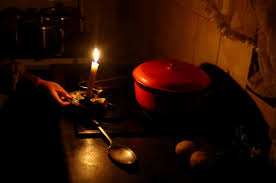

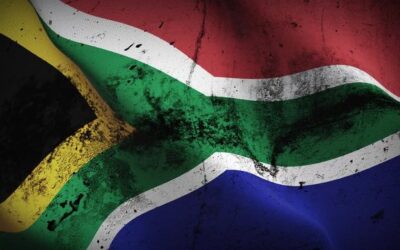
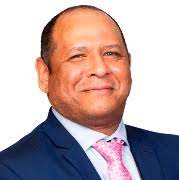
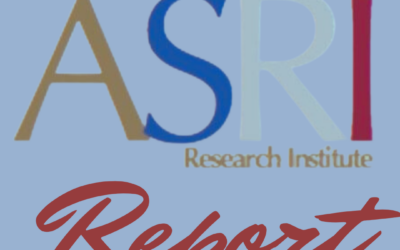
0 Comments